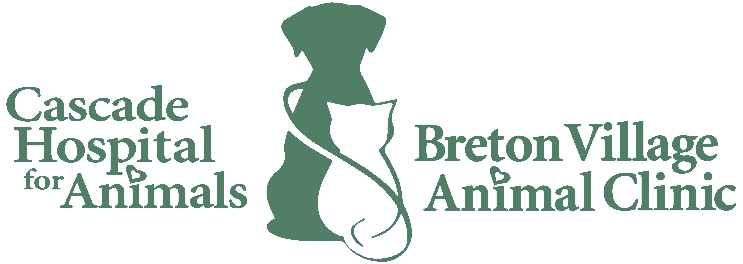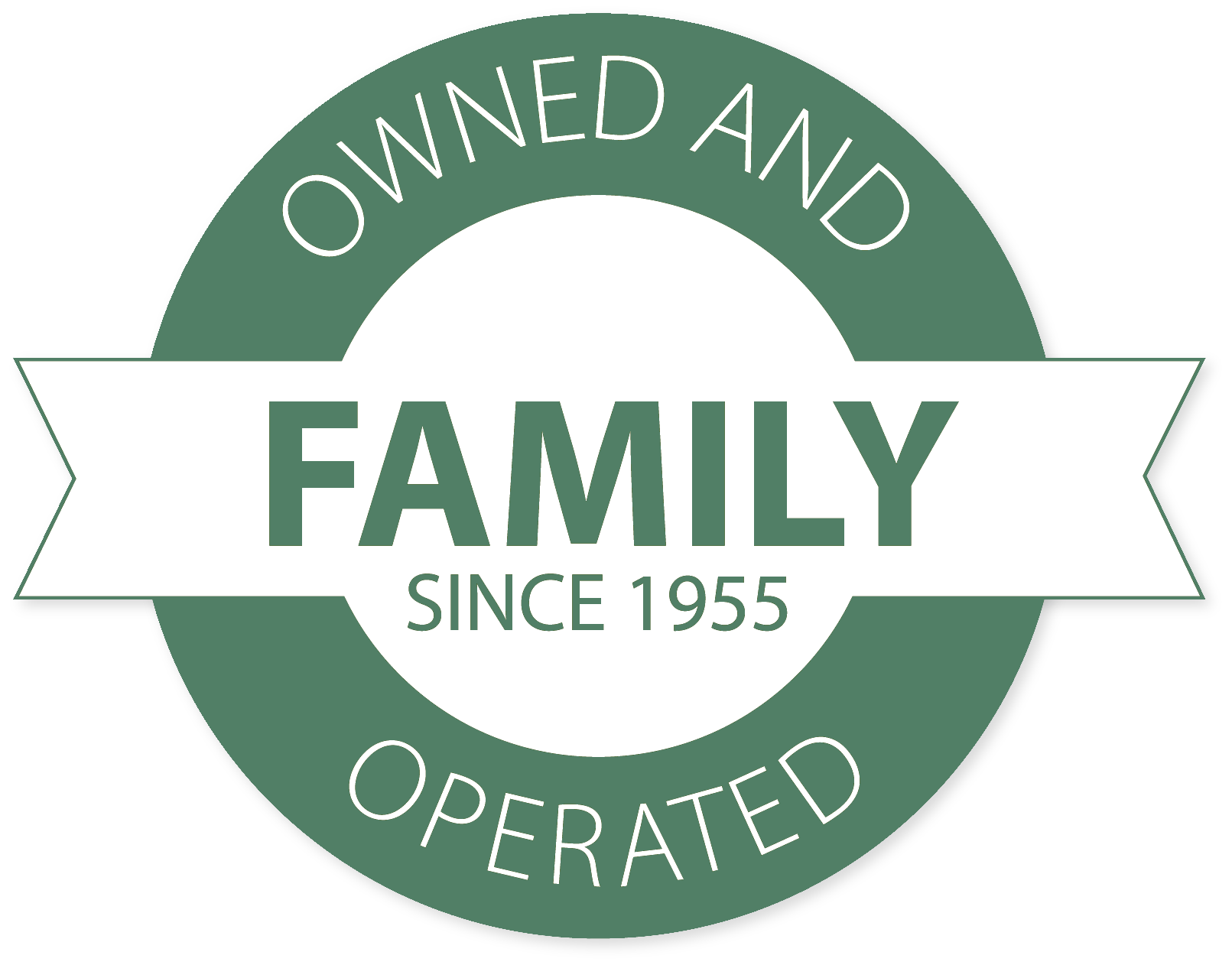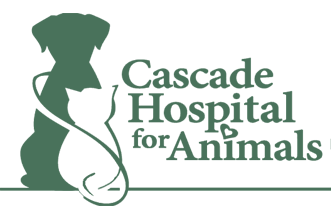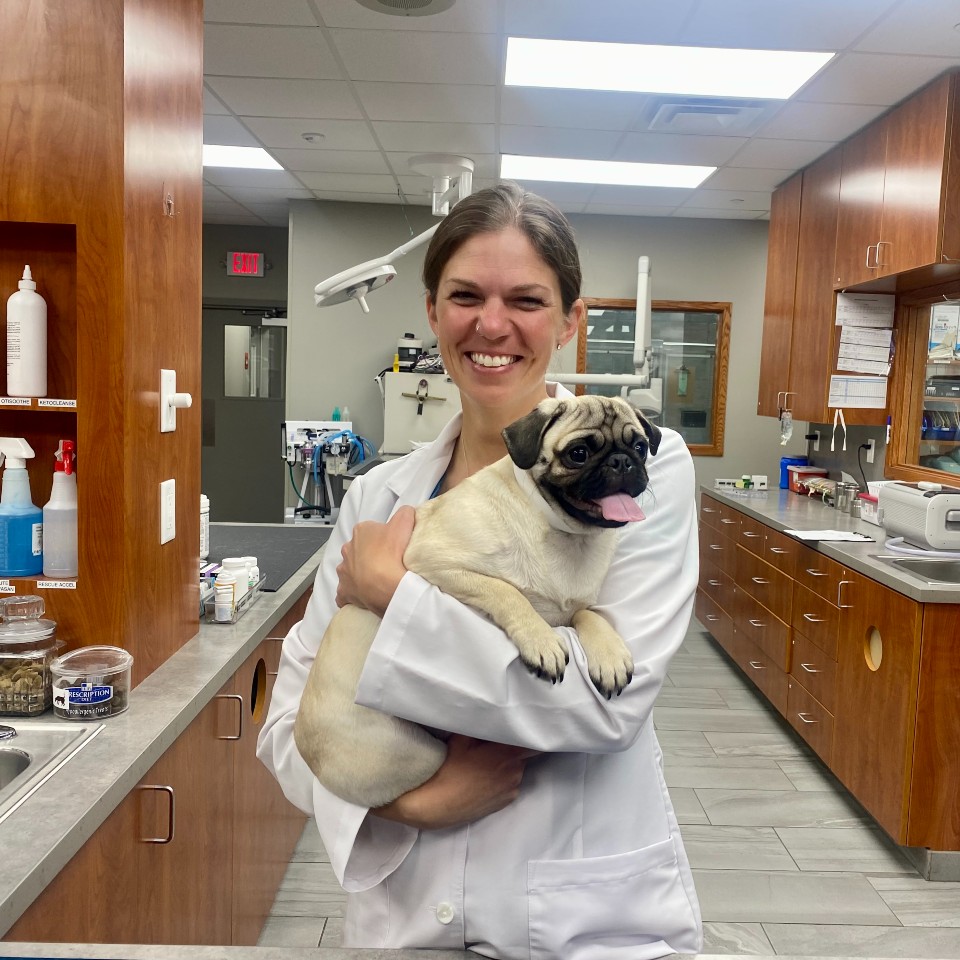
What are the most common puppy health questions?
Summertime often means something fun for those of us in the veterinary field: more puppies! Our clients, both new and existing, will soon be bringing their new family members to us for first visits, shots—and loads of questions. It’s natural even for veteran puppy parents to have concerns for their pet’s health, and we’re here to help you understand the most common issues puppies face in their early months.
We typically see puppies for their first visit in the first six to eight weeks of their lives. During those first visits we often hear the same questions come up. Dr. Julie Wesselink broke down some of the most frequently asked questions we hear and the response that we give.
What should I feed my puppy?
Diet is an essential part of your puppy’s growth and development. Puppies have different dietary needs from adult dogs and need the right balance of nutrients. We will help you choose an age-appropriate brand and formula of puppy food.
“A good general guideline when choosing a puppy food is to find one that is approved by the Association of American Feed Control Officials (AAFCO) and is specifically listed as a food for the puppy life stage,” says Dr. Wesselink. “When commercial dog foods comply with AAFCO guidelines, then we know that they are nutritionally complete and appropriate for growing puppies.” Small and medium size dogs should be fed puppy food until they are 12 months old, then slowly transitioned to adult dog food over one to two weeks. Large and giant breed puppies may need puppy food until they are 15-16 months old, then they can be transitioned to adult dog food.
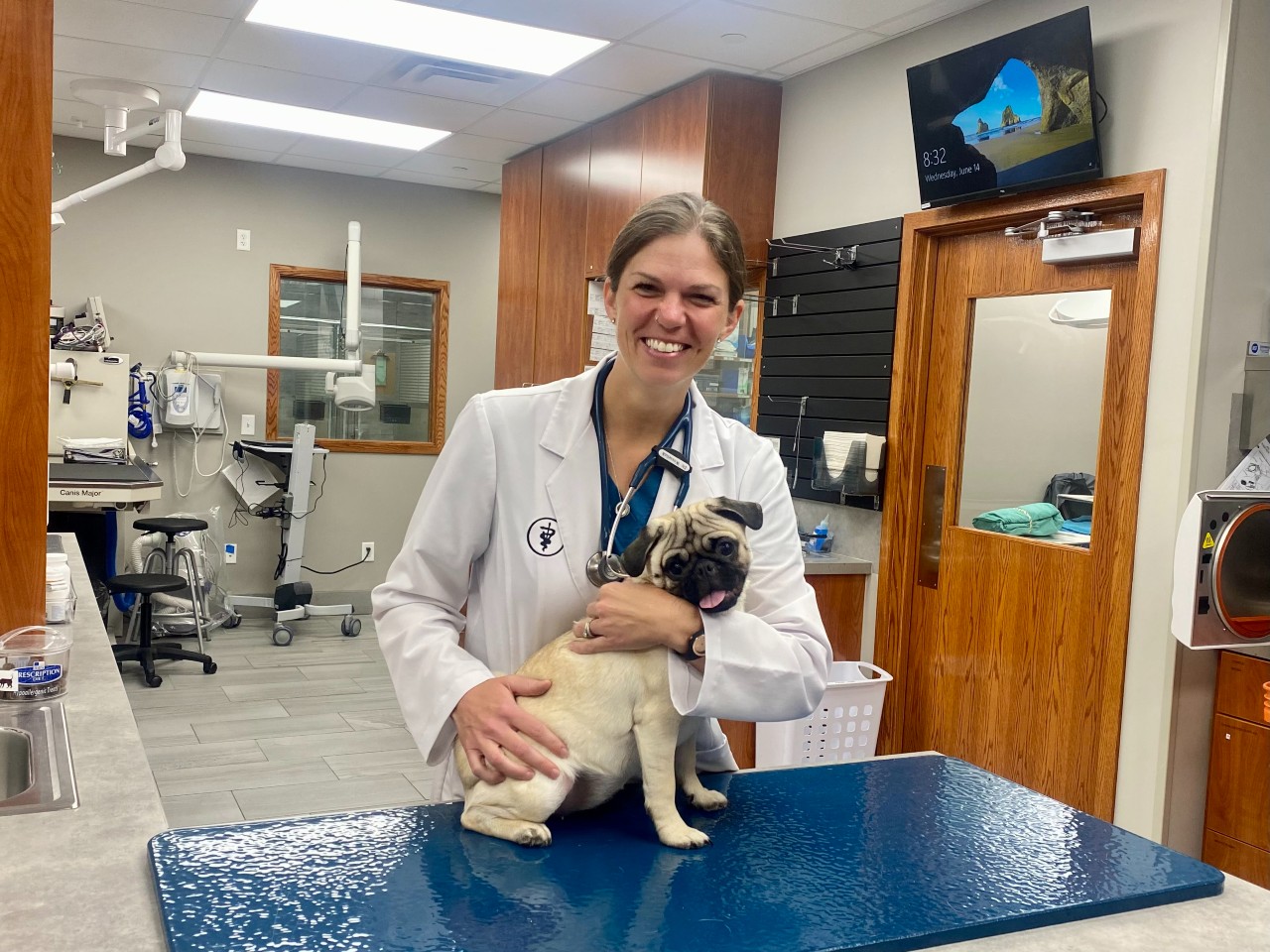 Dr. Wesselink with a happy young pug patient.What are the signs of health problems in puppies, and when should I be concerned?
Dr. Wesselink with a happy young pug patient.What are the signs of health problems in puppies, and when should I be concerned?
- Vomiting and diarrhea: Digestive issues can be a sign of stress or a new diet, or they could signify something more serious. “If your puppy has more than one episode of vomiting or diarrhea, if he or she seems lethargic or is acting abnormally otherwise, or if there is blood noted in the vomit or diarrhea, then contact our office to make an examination appointment,” says Dr. Wesselink. “At home you can withhold food for a few hours if the puppy is vomiting, but keep water available if they can drink small amounts of water without vomiting.”
If the vomiting does not continue, try offering small amounts of a bland diet such as a 50/50 mixture of boiled chicken and cooked white rice (if your puppy does not have a chicken allergy) for two days, then slowly transition back to normal puppy food over the course of a week. You can also collect a fecal sample if possible to bring in for fecal testing as sometimes gastrointestinal parasites in puppies can cause diarrhea or vomiting.
- Respiratory issues: A cough from your new puppy can be a surprising sound, but they usually are nothing to worry about. However, puppies are often more vulnerable than their adult counterparts to certain respiratory infections such as kennel cough, so if your puppy’s cough persists or is accompanied by retching, a runny nose, sneezing, and eye discharge, give us a call. “If a puppy’s cough is not persistent and happens after pulling on his or her leash, in areas with significant airborne debris, or after drinking or eating too quickly, this could be normal,” says Dr. Wesselink.
- Fleas, ticks, and worms: Puppies are just as susceptible as adult dogs to parasites like fleas, ticks, mites, and worms (such as roundworms, hookworms, and tapeworms). These pests are not only annoying, they can lead to discomfort, skin infection, and even serious illness. “We recommend keeping your puppy on preventive medication like Simparica Trio once a month to protect against heartworm disease, fleas, ticks, and intestinal worms,” says Dr. Wesselink. “Puppies weighing at least 2.8 lbs. can start this preventive medication as early as eight weeks old.”
- What vaccinations does my puppy need and when?
Vaccinations are vitally important in your puppy’s first year. They’re the foundation of your puppy’s health, and they’re also key to allowing your puppy to begin socialization: Boarding facilities, doggy day cares, dog parks, and other social settings often require puppies to have their proof of vaccinations to participate.
Not every puppy needs every vaccine, but there is a generally accepted list of vaccines that puppies receive that should follow a recommended schedule.
Vaccines Recommended by the American Animal Hospital Association (AAHA):
Core Vaccines are recommended for all dogs regardless of lifestyle unless there is a medical reason not to vaccinate. Non-core vaccines are recommended for some dogs based on lifestyle, geographic location, and risk of exposure. - DHPP Vaccine: Distemper Virus / Infectious Canine Hepatitis (caused by Adenovirus) / Parvovirus / Parainfluenza Virus, Core Vaccine
- Rabies Vaccine, Core Vaccine
- Leptospirosis Vaccine, Non-Core but highly recommended as Leptospirosis is a zoonotic disease that can spread to humans through infected dogs
- Bordetella Bronchiseptica Vaccine (“Kennel Cough” Vaccine), Non-Core but highly recommended for dogs who have any interaction with other dogs such as going to dog parks, boarding, grooming, or training classes
- Canine Influenza Virus Vaccine, Non-Core but highly recommended for dogs who have any interaction with other dogs such as going to dog parks, boarding, grooming, or training classes
- Lyme Vaccine, Non-Core but highly recommended for dogs who live in areas with high tick exposure
The timing of each puppy’s vaccine schedule may vary based on when they start and their specific lifestyle, but here is one example of a puppy vaccine schedule:
- 6-11 weeks old: DHPP, Canine Influenza, Can start Bordetella at 8 weeks old
- 12-15 weeks old: DHPP booster, Canine Influenza booster, Rabies
- 16-19 weeks old: DHPP booster, Leptospirosis, Lyme
- 20-23 weeks old: Leptospirosis booster, Lyme booster
After they receive their vaccinations, some puppies may experience mild side effects like soreness, lethargy, or a slight fever. After their vaccines, monitor your puppy and give us a call if the symptoms persist or worsen.
The most important thing to remember when you’re bringing a new puppy into your home is to have patience. We’ll help you give your puppy the right start from their very first visit. “We love making sure that you and your new puppy are starting off on the right foot!” says Dr. Wesselink. “During your puppy’s veterinary visits we will track his or her development and answer any health or behavioral questions you may have as they grow. Puppies can be a lot of work, but the time spent prioritizing proper veterinary care, socialization, and basic obedience training pays off huge dividends as they mature into adult dogs and lifelong companions!”
